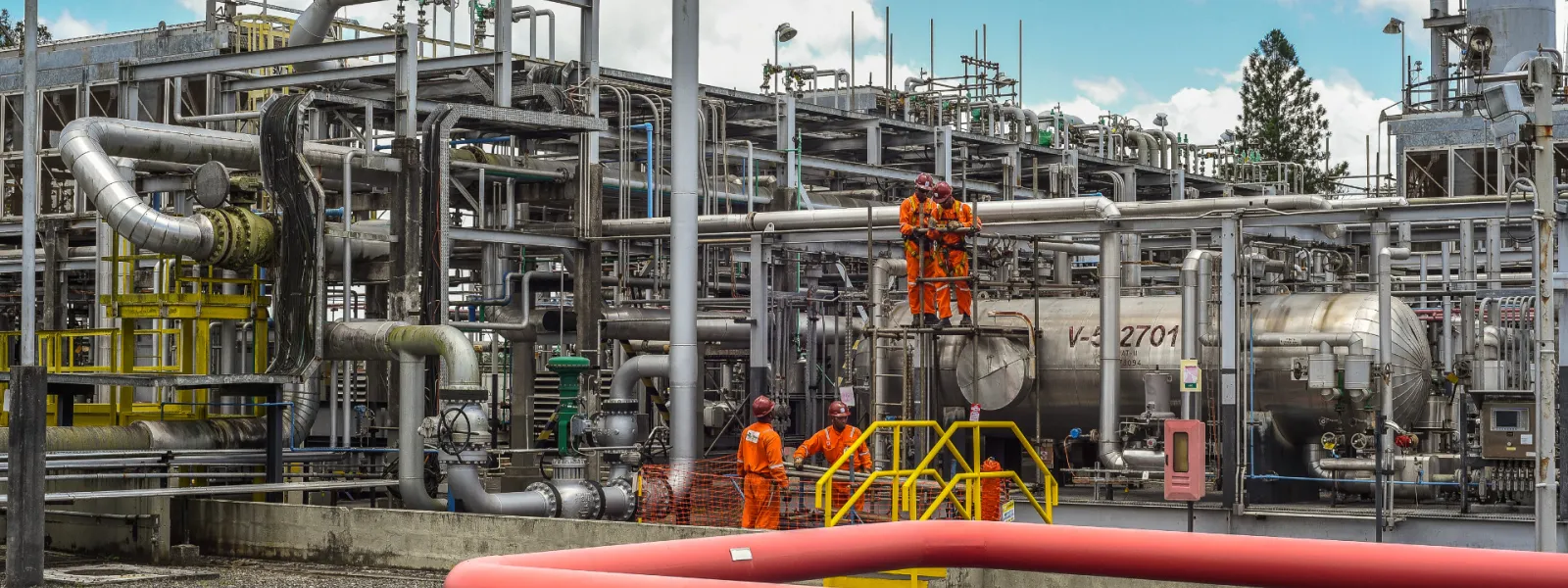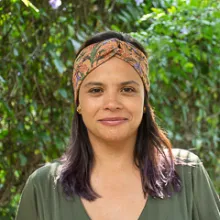
Continued extractive activities put indigenous and rural communities at increased risk from the pandemic
Photo: Brazil's Ministry of Mines and Energy (CC BY-NC 2.0) .In most Latin American nations, governments have implemented health and social isolation measures to contain the spread of the COVID-19 pandemic.
Within the framework of these restrictions, exceptions have been established for activities considered essential, including emergency care, the provision of health services, and the marketing and supply of essential goods.
However, the governments of Bolivia, Ecuador and Peru have also exempted mining and oil activities from the restrictions, stating they are in the national interest.
The exceptional treatment accorded to extractive activities in some countries of the region has significantly increased the vulnerability of indigenous peoples, and amplified the risks and threats they face, since these operations are carried out in their territories.
In addition, the entry and exit of workers without proper health measures diminishes the effectiveness of the protective measures adopted by these peoples, such as epidemiological fences or social isolation. Thus, there is an increase in the spread of the virus and in the number of infected persons. In addition, in practice, these rural populations have little or no access to the health and sanitation services needed to deal with a health crisis such as that generated by COVID-19.
At the regional level, the Coordinating Body of Indigenous Organizations of the Amazon Basin (COICA) has demanded that States guarantee access to health and food for the indigenous peoples and nationalities of the Pan-Amazon, as well as to intensify surveillance and protection of the territories "invaded by oil, mining, logging and other people."
The particular situation of each country is as follows:
BOLIVIA
In late March, the government issued a Supreme Decree establishing that companies that "provide services for the supply of gasoline, gas, diesel and other fuels" are authorized to continue their operations "without interruption.” The decision has generated concern among indigenous organizations.
"In Tarija and part of Santa Cruz, as well as in El Chaco, the oil companies continue to work with total normality. There are changes in personnel that arrive in vehicles continuously. Our fear is that they will bring the virus to the indigenous communities," indigenous leader Alex Villca, member of the Coordinating Committee for the Defense of Indigenous, Native, Peasant and Protected Areas Territories (Contiocap), told Mongabay.
ECUADOR
The organization of the Waorani Nationality of Ecuador (NAWE) alerted the national government to the detection of two positive cases of coronavirus among the workers of Block 16, which would be operated by the company Repsol YPF.
The Waorani called on the government to adopt special protocols for "the protection of territories and indigenous populations," adopting measures to control and restrict the activities of oil company personnel who "are operating legally in indigenous territories and to prevent the propagation of the pandemic."
Repsol Ecuador S.A. informed in a press release that the two positive cases correspond to workers of a contracting company who, after being previously tested, did not enter the company's operations.
PERU
In March, the government issued a Supreme Decree to combat the health crisis resulting from the pandemic. The decree provides for restrictions on the right to freedom of movement, exempting from this measure certain welfare and economic activities considered essential. Mining was not one of them.
However, the Ministry of Energy and Mines included mining among the essential activities that must still be carried out in quarantine to ensure minimum operations, saying it would do so without affecting the integrity of workers and communities. This decision came after the National Society of Mining, Oil and Energy and the National Confederation of Private Business Institutions separately stated that the mining industry could not be stopped.
The National Organization of Andean and Amazonian Indigenous Women of Peru criticized this decision. The presence of mining and oil operations in indigenous territories "puts the lives and health" of those peoples at risk, they said.
In the context of the pandemic, states must implement comprehensive and concerted health strategies to respect, guarantee and protect indigenous and peasant communities near mining or oil exploitation projects and other activities that put them at risk.
Rosa Peña Lizarazo

Rosa Peña Lizarazo is Colombian and a senior attorney with AIDA's Human Rights and Environment Program, as well as Coordinator of the Coal Area, working from Bogotá. She is attorney from the Universidad del Rosario, Colombia whose bachelor's degree focused on Constitutional Law and Human Rights. Rosa holds a Master's Degree in Interdisciplinary Development Studies, with an emphasis on Territorial Development Management, from the Universidad de los Andes, in Colombia. She has also experience in community accompaniment and strategic litigation in cases of human rights violations derived from development policies and projects.
